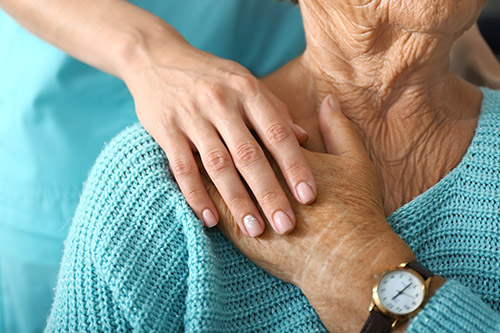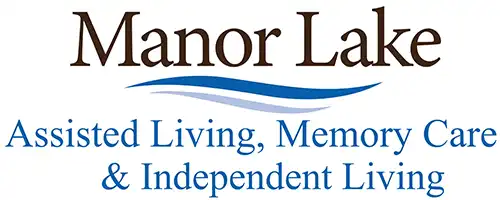
Well, the new year is upon us. It’s early January and from experience, we here at Athen’s Manor Lake Assisted Living and Memory Care know that many of you purposely (and understandably) chose to ignore the notion that your senior loved one is now fully dependent. That is something so many of us simply do not want to address during the Holidays. But now you feel you can no longer prolong the fact that you must prepare for a monumental life change, for everyone involved.
When a senior’s health begins to decline, an adult child or other loved one may take on a few tasks to help. Aiding with chores like grocery shopping and mowing the lawn can allow the older adult to remain in their home. As the senior’s needs worsen, loved ones often take on more responsibilities.
For some families, however, it is a crisis of some kind that causes them to assume the role of family caregiver. The senior might have experienced a fall or been diagnosed with a chronic illness. In these situations, a caregiver may find themselves struggling to juggle all their loved one’s needs. It can be an overwhelming transition for people to make.
If you are in this situation, we have some suggestions to help new family caregivers like you manage the role.
5 Tips for New Caregivers
- Accept the idea need help
One belief family caregivers often have is that they should be able to manage their senior loved one’s care on their own. This is rarely possible. Acknowledge that you will need to ask for help and give yourself permission to accept assistance when it is offered.
Support for caregivers can come in many forms. It could be allowing a friend to stay with your loved one for an hour or two while you relax and take in a movie or spend some time with your spouse. A friend may also be able to help by picking up a few groceries or dropping off dinner. - Get organized
Caregivers say they feel an extraordinary amount of stress when initially stepping into the caregiving role. Part of that stress comes from worrying they are forgetting crucial appointments or other important tasks. Getting organized can help relieve some of that anxiety.
First, ask a friend or family member to stay with your loved one for a few hours so you can sort and organize all their important health care paperwork and legal documents. Place these in a binder by topic or date (e.g., test results, medication list, and physician contact information).
Next, add all the senior’s appointments and follow-up tasks to your personal calendar. This helps to avoid double-booking yourself or missing something crucial. Not having to rely on your memory can alleviate some of your stress. - Establish and stick to a routine
This step may take some time to implement but having a routine to follow can help caregiving days run more smoothly. Try to cluster errands and appointments on one or two days each week. This allows you to have uninterrupted days at work and at home. It also requires fewer arrangements for a friend or family member to stay with your loved one. - Connect with a caregiver support group
Caregivers face unique challenges that others may not understand. From offering tips on juggling a busy caregiving schedule to commiserating over how much time is spent waiting for a specialist to see the older adult, having a support network of peers is helpful.
Support groups also help with the emotional side of caregiving. Peers can empathize when you are feeling guilty, resentful, angry, or sad. - Practice good self-care
Much like the flight attendant on a plane explaining you should place a mask over your mouth before helping others, a caregiver must make good self-care a priority. You can’t care for your loved one if you are exhausted and sick yourself. Caregivers who don’t take care of themselves often experience a medical crisis of their own.
Our Final Suggestion
Our final suggestion is to become acquainted with us before you need us. We understand what you’re going through and can help you. We want to develop a trust and understanding and when the time comes, we hope that you’ll team with us for your professional senior assisted living support services. Together, we’ll provide the best loving care possible.
Give us a call. Let’s talk.

